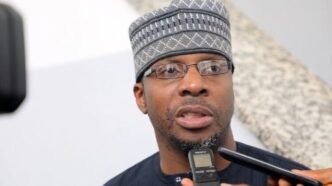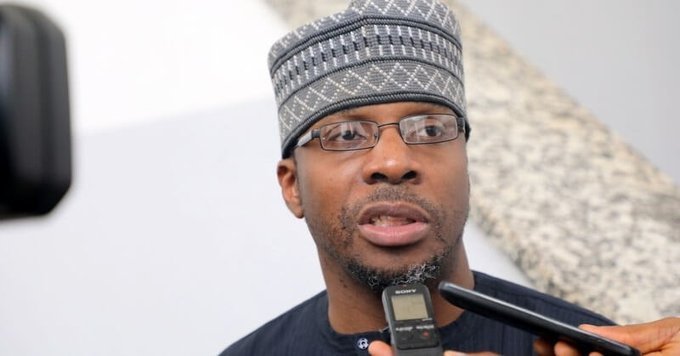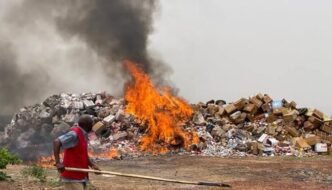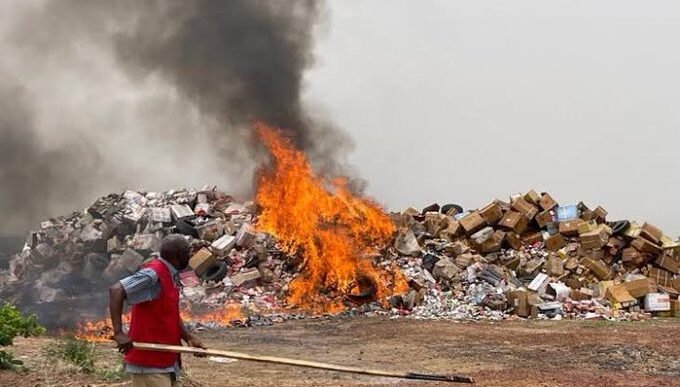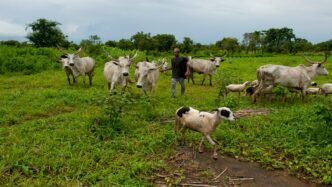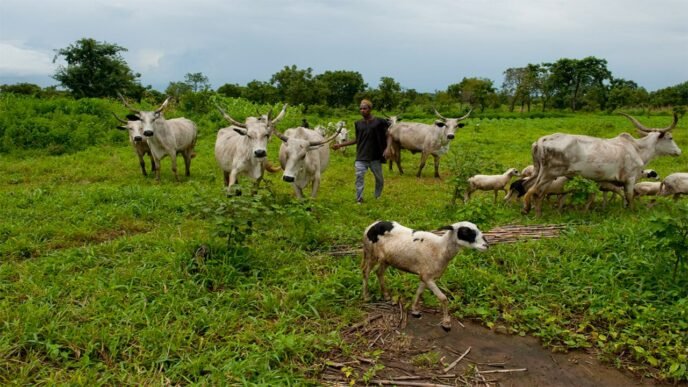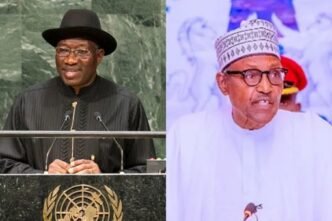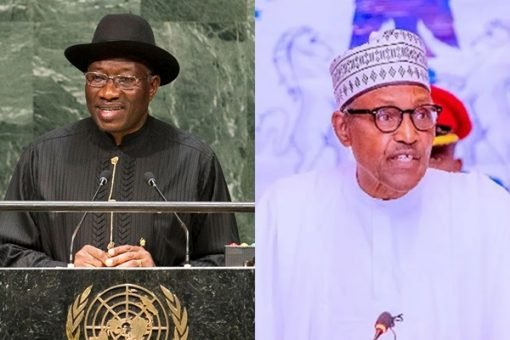Nigeria’s poverty crisis has once again come under the spotlight after former Statistician-General of the National Bureau of Statistics (NBS), Dr. Yemi Kale, revealed that the country now has the second-highest number of poor people in the world, surpassed only by India.
Kale, who led Nigeria’s statistical agency from 2011 to 2021 and now serves as Group Chief Economist and Managing Director of Research & Trade Intelligence at Afreximbank, made the disclosure while speaking at The Platform Nigeria Independence Day programme in Lagos on October 1, 2025. His statement has triggered widespread debate about the true scale of poverty in Africa’s most populous country and what urgent measures are needed to address the crisis.
What Yemi Kale Actually Said
During his presentation, Kale stressed that the scale of Nigeria’s poverty problem is staggering. He noted that:
- Approximately 89 million Nigerians are living in poverty, representing about 40 per cent of the nation’s population.
- Nigeria is second only to India in terms of the total number of poor people, meaning only one country in the world has more citizens living below the poverty line.
- The number of poor Nigerians is larger than the entire population of more than 170 countries worldwide.
In his words, “Nigeria now has the second-highest number of people living in poverty in the world. Only India has more. With about 89 million Nigerians classified as poor, this figure is larger than the population of most countries.”
Kale argued that Nigeria’s economic policies, delayed reforms, and weak governance structures have all contributed to this alarming reality.
Understanding the Poverty Data
The statistics quoted by Kale align with previous estimates released by the National Bureau of Statistics and international bodies.
In November 2022, the NBS reported that 133 million Nigerians were multidimensionally poor, based on access to healthcare, education, housing, sanitation, and living standards. However, that survey also acknowledged variations in methodology compared to global poverty headcount ratios.
Kale’s updated figure of 89 million people living below the income poverty line focuses specifically on Nigerians unable to meet basic consumption needs. It reflects the impact of inflation, currency devaluation, and rising food and energy prices on household welfare since the release of the last major poverty report.
By global comparison, Nigeria’s estimated 89 million poor is exceeded only by India, where about 228 million people are still classified as poor despite rapid economic growth. This places Nigeria ahead of countries such as the Democratic Republic of Congo, Ethiopia, Bangladesh, and Pakistan in terms of poverty headcount.
Why Nigeria Has So Many Poor People
Several factors have driven Nigeria’s position as the country with the second-highest number of poor people in the world:
1. Rapid Population Growth
Nigeria’s population is currently estimated at over 220 million and is projected to reach 400 million by 2050. With the economy not growing fast enough to match population expansion, more people are being pushed into poverty.
2. Inflation and Currency Crisis
High inflation, especially food inflation which has hovered above 30 per cent in recent months, continues to erode household purchasing power. The naira’s depreciation against the dollar has also worsened the cost of imports, raising living costs.
3. Weak Economic Growth
Although Nigeria exited recession in 2021, growth has been sluggish, averaging around 2–3 per cent annually — far below the 6–7 per cent needed to lift millions out of poverty.
4. Unemployment and Underemployment
Job creation has lagged behind the rising youth population. Millions of Nigerians, particularly young graduates, remain unemployed or underemployed, fueling economic hardship.
5. Governance and Policy Gaps
Kale pointed out that delayed reforms and inconsistent policies have worsened the poverty situation. He noted that “many of the reforms we are seeing now should have been implemented years ago,” adding that poor planning has made the impact of today’s adjustments more painful.
6. Weak Social Safety Nets
While social welfare programs exist, such as conditional cash transfers, they are often inadequate, poorly targeted, or hindered by corruption, leaving millions without meaningful support.
Global Context
Placing Nigeria’s poverty numbers in a global context reveals the depth of the challenge:
- India: ~228 million poor
- Nigeria: ~89 million poor
- Democratic Republic of Congo: ~60 million poor
- Ethiopia: ~54 million poor
- Bangladesh: ~50 million poor
- Pakistan: ~47 million poor
This comparison underscores Nigeria’s outsized share of the world’s poor relative to its population. While India’s larger numbers are partly due to its 1.4 billion population, Nigeria’s figure stands out because of the high proportion — nearly 40 per cent of its citizens.
Fact-Checking Kale’s Claim
Was Kale’s statement accurate? Evidence suggests yes.
- World Bank Data: Nigeria consistently ranks among the countries with the largest number of poor people. A 2022 World Bank report noted that Nigeria, India, and the Democratic Republic of Congo account for a large share of the world’s poor.
- NBS Surveys: The 2022 NBS poverty and inequality report confirmed that over 130 million Nigerians are multidimensionally poor. While definitions differ, it supports Kale’s argument that poverty affects a massive portion of Nigeria’s population.
- International Estimates: Various global poverty trackers, including the Brookings Institution and the World Poverty Clock, have placed Nigeria among the top three poorest countries by headcount in recent years.
Therefore, Kale’s assertion that Nigeria is the country with the second-highest number of poor people globally is backed by both national and international statistics.
Implications for Nigeria
The fact that nearly 90 million Nigerians live in poverty carries wide-ranging implications:
- Human Development: Poor access to healthcare, nutrition, and education undermines human capital, leaving Nigeria ill-prepared for global competitiveness.
- Economic Growth: A large poor population reduces domestic demand, stifles entrepreneurship, and limits productivity.
- Security Risks: Poverty is strongly linked to rising insecurity, including banditry, insurgency, and kidnappings across parts of the country.
- Migration Pressures: With limited opportunities at home, more Nigerians — especially young people — are attempting to migrate abroad, contributing to brain drain.
What Can Be Done
Experts, including Kale, insist that reversing the poverty crisis requires urgent and bold action:
- Accelerate Inclusive Economic Growth: Nigeria must diversify beyond oil, promote agriculture, manufacturing, and technology, and create jobs for millions of young people.
- Strengthen Social Safety Nets: Cash transfers, health insurance schemes, and food support programs must be better funded, transparent, and effectively targeted.
- Control Inflation: The Central Bank and government must coordinate policies to stabilize prices, curb food inflation, and restore the naira’s value.
- Invest in Education and Health: Long-term poverty reduction depends on improving access to quality education and affordable healthcare.
- Good Governance: Reducing corruption and ensuring efficient resource use remain essential to poverty alleviation.
Conclusion
Dr. Yemi Kale’s assertion that Nigeria now has the second-highest number of poor people in the world is firmly supported by available data. With about 89 million Nigerians struggling to survive below the poverty line, the nation faces a daunting challenge that cannot be ignored.
While recent reforms may offer long-term benefits, they have also worsened immediate hardship for many households. Unless urgent steps are taken to balance reform with social protection, the crisis could deepen, threatening Nigeria’s social stability and economic future.
As the country prepares for the 2027 elections and beyond, poverty reduction must sit at the very heart of the national agenda. For Nigeria, the time for bold, inclusive, and people-centred economic policies is now.

